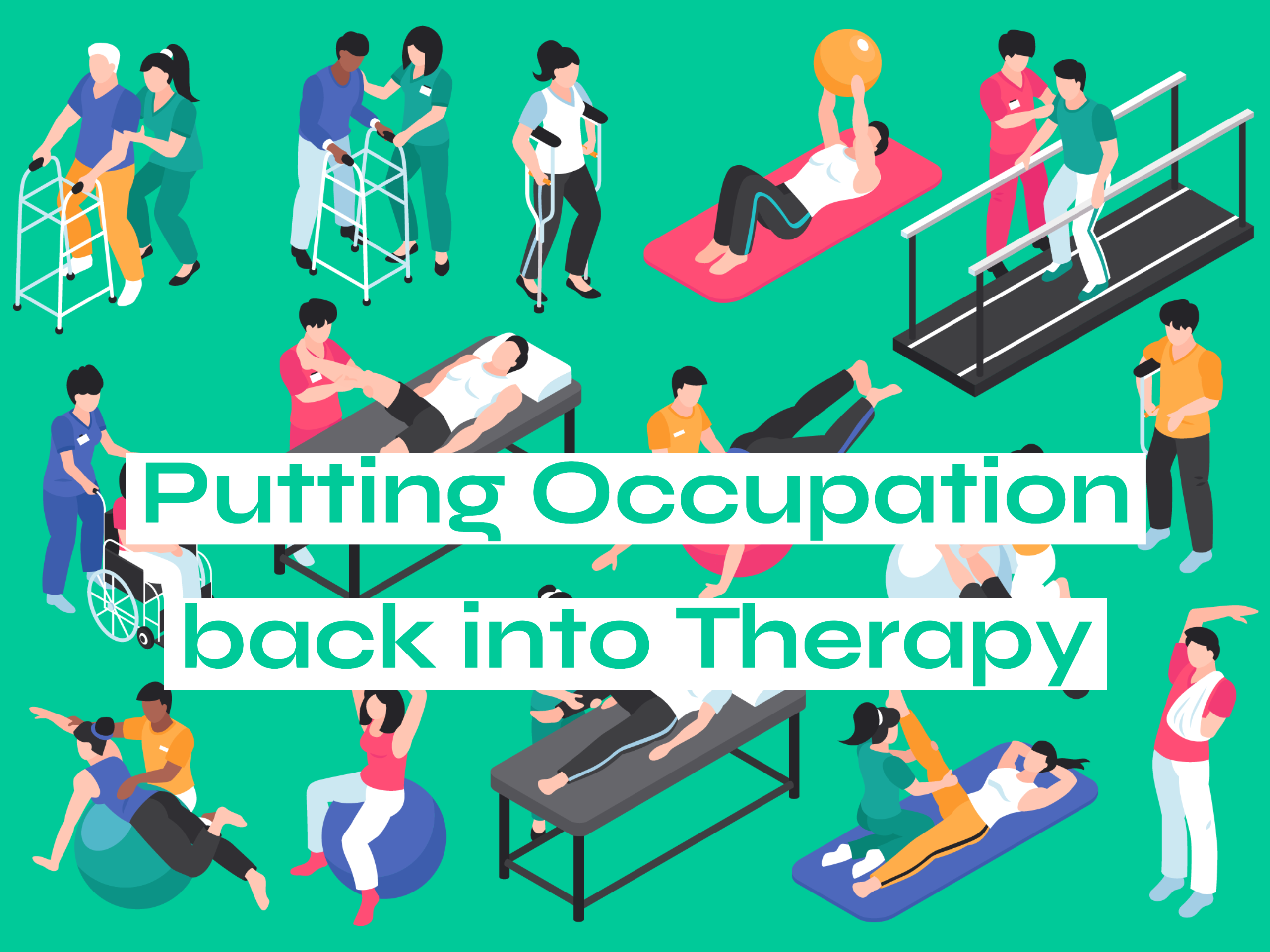Occupational Therapy began with humble beginnings where people were employed to occupy patients in hospital during the first world war. It was soon recognised that by having a person engage in a meaningful task, that great things can happen!
Over time, the science of occupational practice evolved into what we know now as Occupational Therapy. Occupational Therapy is a client centred health profession which promotes health and wellbeing through occupation (WFOT, 2012).
Occupational Therapists will work with individuals across the lifespan (infants to elderly) to enhance their occupational engagement. This can be by improving participation or modifying the occupation or environment to maximise a person’s occupational engagement.
When OT’s talk about occupation, we are not talking jobs…. well, not all the time!
Occupation is a term to describe all the roles that we perform that occupy time and are meaningful to us as individuals. An occupation can be something we need to do, want to do, or are expected to do. This can include things like being a brother, mother, volunteer, or sports enthusiast.
Occupation enables OT’s to be holistic in their approach. It is important to understanding what an individual finds meaningful and what they prioritise in their life. This then supports the OT’s to be person centred as they understand their client’s motivation.
How do we use occupation?
Assessment: OT’s observe individuals performing “occupations” and determine if there are any challenges for the person or environment that can help them achieve their goal
Planning: OT’s support individuals to goal set using their occupational goals – i.e. At the end of my therapy block I will be able to read a bus timetable and plan my weekly trip to the grocery store without any additional support
Intervention: Occupation will be the centre of any therapy that is provided by an OT. It may be broken down into smaller tasks or practiced with the use of adaptive technology (equipment) to support the person to achieve their goal.

What’s the benefit of occupation-based therapy?
Evidence shows that when using occupation that is meaningful as a goal, there is an increase in purpose, motivation, and engagement for the individual (Lawson & Creek, 2010).
Occupation isn’t just a way to describe what we do; it explains who we are and what is meaningful and purposeful for us as individuals.
OT’s use occupation to ensure we are client-centred to support people to reach their goals.
At National 360 we are passionate in supporting individuals to achieve goals through occupation.
We have OT’s working in people’s homes and communities across Australia and work with clients of all ages to support independence, inclusion, and participation.



